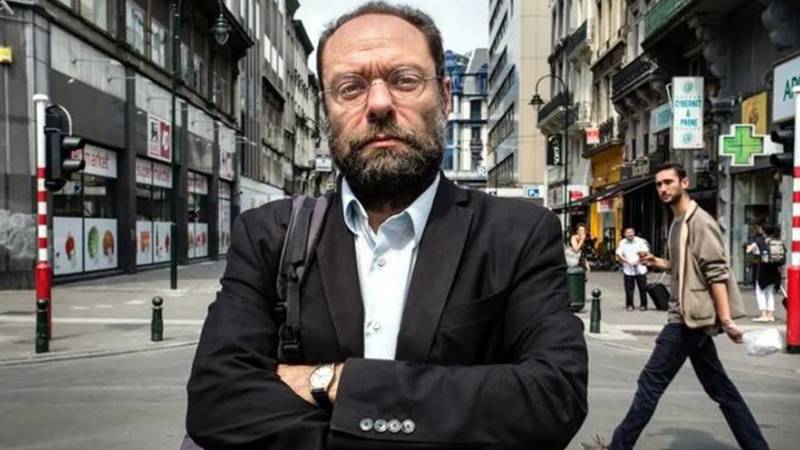Turkish authorities have deported Evangelos Areteos, a reporter for the Greek Real newspaper and author of two books on Turkish politics, “for reasons of public order,” the Gazete Duvar news website reported on Monday, citing an online statement by the journalist.
“I was expelled from Turkey for reasons of public order. A deeply saddening development that leaves me with grief,” Areteos said in a tweet on Monday in which he shared a written statement.
I was expelled from Turkey for reasons of public order. A deeply saddening development that leaves me with grief. pic.twitter.com/05yJzxGV15
— evangelos areteos (@evanareteos) August 29, 2022
According to the statement, Areteos was detained by authorities at Sabiha Gökçen Airport in İstanbul after he arrived from Brussels on Aug. 25 and was held for about seven hours.
The authorities then gave the journalist a document saying he was barred from entering Turkey “for reasons of public order,” failing to give him a specific reason, and sent him back to Brussels at 9:40 a.m. the next day.
Areteos said the questions he was asked at the airport led him to believe that the main reasons for his deportation were his travels in southeastern Turkey, a trip to northern Syria in 2015 and his travels in the rest of Turkey, in addition to his contacts with people the Turkish government considers “suspicious” and the photos on his phone that are related to the activities of the Kurds in northern Syria.
“Like any reporter who reports, I was the recipient of news and photos. I never hid my travels and meetings. After all, I was an accredited journalist, with a card from the relevant Turkish authority,” Areteos added.
The journalist said the fundamental principle that he decided should govern his professional life was “to always convey a more objective image of Turkey to Greece and Cyprus, as a journalist of Greek and Cypriot media. Apart from demonization, simplifications and prejudices. … And with deep respect and love for the country and all its people, regardless of their political beliefs or origins.”
Areteos said he also developed a personal, emotional relationship with Turkey, where his children were born, that he made very good and true friends and professional and personal ties with many people, describing the country as a place where he “truly felt at home.”
“The decision of the Turkish authorities is something I cannot understand, it is something that deeply saddens me and now makes me feel like an exile,” the journalist said, noting that he would continue to cover Turkey and work with the same convictions even from a distance, “in the hope that at some point the Turkish authorities will reverse their decision.”
“Greek journalist Evangelos Areteos’ long history working in Turkey should not come to an unceremonious end due to authorities’ disapproval of his work. Authorities must allow Areteos to return to Turkey, where he should be able to report freely and without fear of retaliation,” said Carlos Martinez de la Serna, the Committee to Protect Journalists (CPJ)’s program director, in New York.
It is common for journalists in Turkey, which has a poor record on freedom of the press, to face threats, physical attacks and legal harassment due to their work.
Rights groups routinely accuse the Turkish government of trying to keep the press under control by imprisoning journalists, eliminating media outlets, overseeing the purchase of media brands by pro-government conglomerates and using regulatory authorities to exert financial pressure, especially since President Recep Tayyip Erdoğan survived a failed coup in July 2016.
Turkey, which is among the top jailers of journalists in the world, was ranked 149th among 180 countries in the Reporters Without Borders (RSF) 2022 World Press Freedom Index, released in early May.

